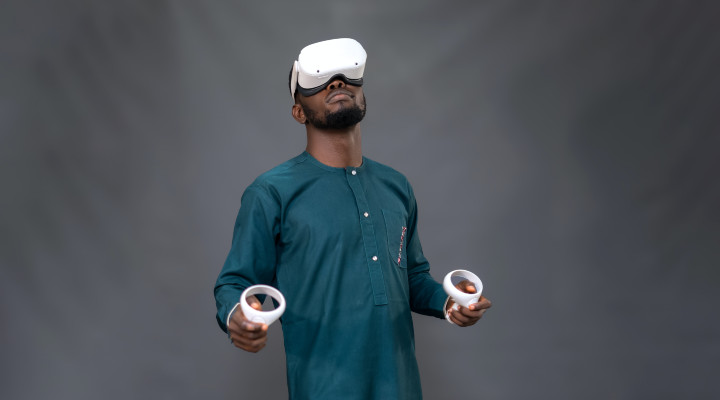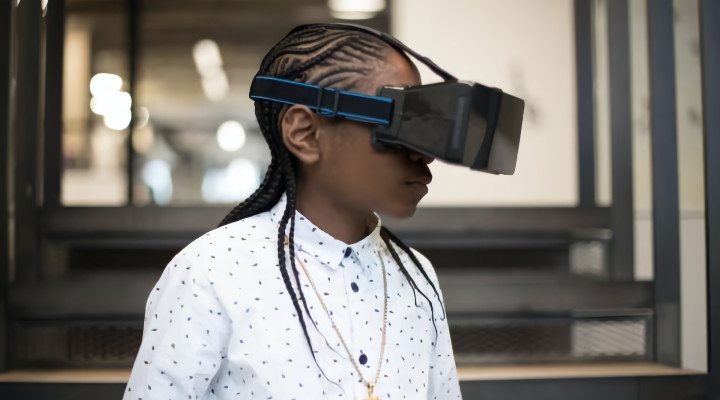Once could say the metaverse is in a downward spiral. On the other hand, generative artificial intelligence (AI) is experiencing a meteoric rise in 2023. So how will these new developments have an effect on the retail marketplace?
Let’s first have a bit of recap on the current state of affairs. Companies like Meta, Microsoft and Disney are scaling back their bets on the metaverse.
Mark Zuckerberg’s $36 billion investment in the metaverse is now going up in smoke, and the company will now be focusing on cutting costs and streamlining projects in a “year of efficiency”.
Meanwhile, Disney is reported to be discontinuing its metaverse division with plans to lay off up to 7,000 employees in a bid to improve profitability across the board. For Microsoft, its $10 billion investment in ChatGPT maker OpenAI is a clear statement of intent for the future of AI.
The trend continues
Walmart recently closed its “Universe of Play”, an advergame targeted at young children on the Roblox metaverse. Even Fashion Week attendance on Decentraland dropped to 26,000 this year from 108,000 last year, which was a 76 per cent decline.
Apparently, it was reported that weekly trading volumes for land NFTs were about $50,000 as only 20 to 30 people are buying and selling Decentraland property. Volumes were previously in the millions.
In a lot of ways, one could say that the hype of the metaverse is over. Its software and gadgets are too expensive and it seems to only appeal to the fields of gaming, art and fashion. As a result, companies are pivoting towards generative AI.

Generative AI and its rise
Andrew Bosworth, Meta’s CTO told Nikkei Asia in an interview, that the company intends to commercialise its proprietary generative AI by December of this year. The company began its full-scale research in 2013, and Bosworth is confident that the company is at the cutting edge.
Bosworth revealed that the AI tech could improve the company’s gigantic advertising business, and it could be applied to all of its products and services, including Facebook and Instagram.
He has not given up on the metaverse yet, and was quoted as saying that the technology could also be used in the metaverse. In the future, users could just describe the world they want, and AI technology could generate the world easily, making content creation a breeze.
A nuanced perspective
According to Raviteja Neralla, retail analyst at Global Data, he is still confident that the metaverse will have a role to play in the future.
“The Metaverse will become a huge market in the coming years, registering significant growth. More and more retail players will adopt the metaverse, owing to its benefits in terms of convenience and customer experience,” he told Inside Retail.
In his opinion, the integration of virtual reality (VR) and augmented reality (AR) will continue to blend physical and digital shopping experiences, allowing retailers to interact with shoppers, improve customer satisfaction and boost sales.
“When non-essential stores were closed during Covid-19 lockdowns, AR and VR provided the opportunity to virtualize products and help reduce inventory issues and cost by helping shoppers make smarter purchasing choices,” he noted.
Neralla also pointed out that AI is an important tool for the metaverse. He has observed that retailers are leveraging AI in developing the virtual shopping experience in the metaverse.
“With the ability to track purchase history, consumer activity, and demographic profiles, retailers will be able to offer personalised product recommendations [using AI],” he said.
He also said AI can implement real-life human features in avatars, creating customised looks for users. The technology can also be used to create a virtual wardrobe, unlocking new product possibilities in the digital clothing space.

Potential pitfalls
Like everything else in life, there are potential risk areas associated with the adoption of the metaverse in retail. Neralla highlighted sexual harassment as one of the key issues which are rife on existing virtual platforms.
“In terms of safety, another challenge relates to children, as it will be difficult for parents to ensure that their children remain in age-appropriate metaverses,” he added.
He has also observed that the metaverse’s demand for internet bandwidth will rise by several orders of magnitude from internet traffic levels today.
“This is almost certain to overload telecom networks unless they embark on significant broadband infrastructure investment programs,” he advised.
More importantly, the topic of data privacy in the metaverse is also another key factor that retailers need to take into account.
He went on to say that retailers operating in the metaverse will have access to large amounts of data, as consumer data is critical to developing innovative services, personalised experiences, and targeted marketing. As a result, data privacy will be a significant issue.
“Our advice to retailers who are looking to incorporate metaverse into their business models would be to remember that there are pros and cons associated with it,,” he stressed.
Ultimately, he feels retailers should not invest excessively in this concept. As consumers can choose physical shopping experiences over shopping using their digital avatars in the near future, retailers are advised to proceed cautiously.







